43 Pro Travel Hacks for a Cheaper, Happier Trip
Looking for ways to slash the cost of your next trip? Wondering how to get freebies from hotels, cut the cost of ATMs, and minimise the chances of being a victim of theft?
Read our list of ultimate travel hacks for a cheaper, more relaxing overseas trip!
1. Apply for a specialist travel debit/credit card
According to MoneySavingExpert, "A specialist card can save you over £100 per holiday." With this in mind, hunt around for the best specialist travel card a few weeks before you depart.
Conversely, using some cards abroad could cost you dearly - especially in foreign transaction fees and spending charges. Find out what these are and avoid them.
2. Carry a cheap backup smartphone for daily use
Taking your expensive smartphone on holiday comes with risks: it could get lost, damaged, or stolen. Instead, buy a cheap smartphone that you can use for Google Maps, booking taxis, and social media - and leave your main phone in the hotel safe box. This also means that you won't lose your main UK SIM card, which you need to access banking and other services via SMS verification codes.
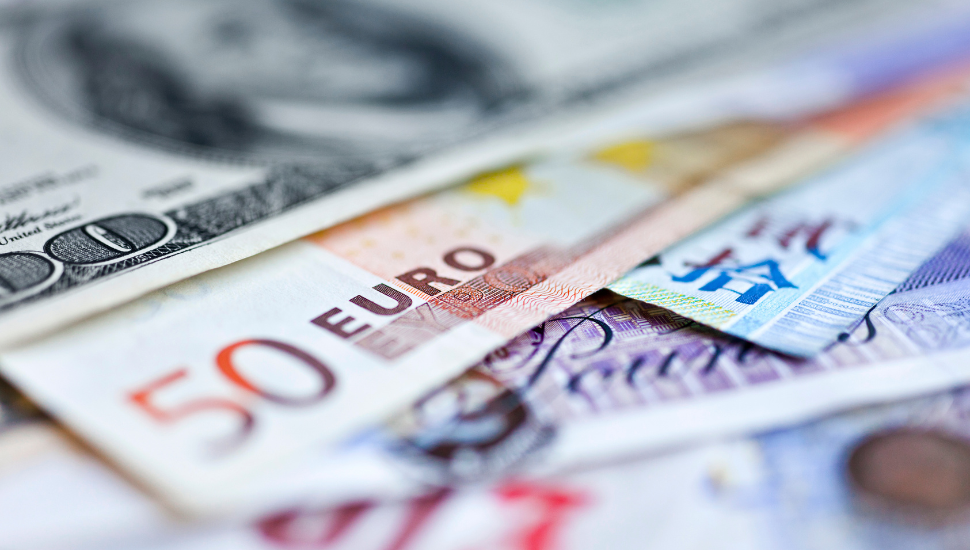
3. Cash is sometimes king
Taking cash with you on holiday, then changing it while overseas, could be a convenient way to organise your money. Additionally, local exchange rates can be so advantageous that it's cheaper to bring your own money instead of using ATMs, which attract hefty fees.
For example, say you plan to spend £2,000 GBP in Thailand. This would require at least 5 trips to the ATM based on the minimum withdrawal, which could cost around £5 per transaction. Add other fees and using your card could increase costs to around £50. With cash, you can avoid these fees.
On the downside, you'll need to keep an eye on local exchange rates, and carrying around a large sum of cash comes with obvious risks.
This approach is probably best for shorter trips, where you don't need to take as much cash. And if your destination is known for petty crime, it’s best to use debit/credit cards instead.
4. Take backup cash just in case
Pack some cash in a major denomination, such as GBP, USD, or euros. This way, you'll have some emergency cash if your card(s) decide not to work, or if your card is subject to a fraudulent transaction (in which case it will be blocked by your bank).
5. Take more than one bank/credit card
Travelling with a single debit/credit card can turn your trip into a nightmare if it gets blocked, lost or stolen. Take two or three cards you can use, so you never find yourself penniless in foreign climes.
6. Get Google Maps Offline or Maps.me
Download the maps you need on Google Maps or Maps.me. This way you'll be able to get around without wifi access.
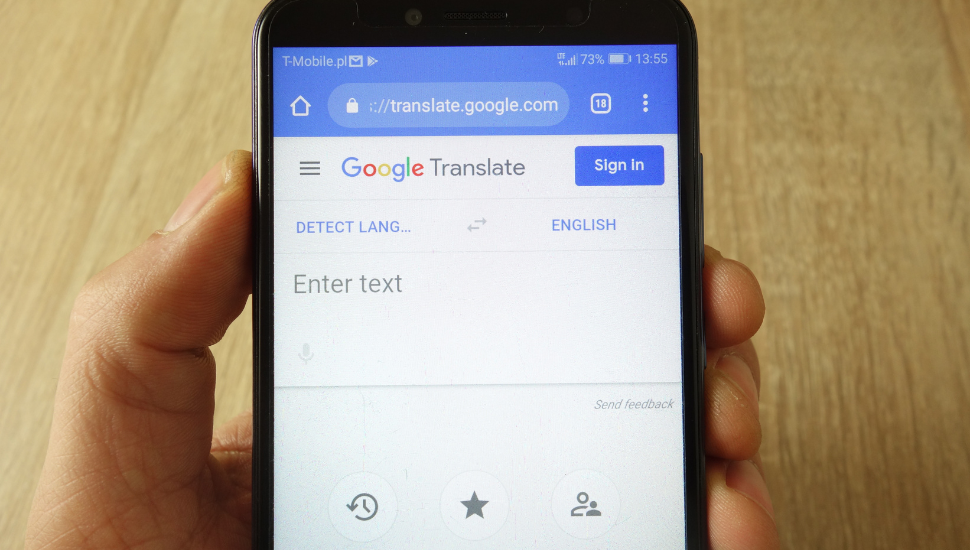
Credit: piter2121 - stock.adobe.com
7. Use Google Translate Offline
Avoid awkward communication problems by downloading Google Translate Offline, in the language of your destination. This will make dealing with taxi drivers, hotel staff, and shop owners much easier.
8. Take care when withdrawing large sums
Withdrawing large sums from ATMs can cut the fees associated with multiple transactions. However, only withdraw money in daylight hours, and take your money back to your hotel immediately.
9. Hide your money
If your hotel room doesn't have a safe, make the effort to hide your money. Inside lip balm tubes, under fridges, beneath shoe linings, or among clothes are all good places that make life difficult for light-fingered intruders!
10. Email yourself a copy of your passport
Keeping a hard copy of your passport is a sensible idea, in the event that your passport is lost or stolen. However, the hard copy could itself go missing, so it's a good idea to email yourself a scan of your passport, so you can retrieve it quickly. It also means you can access a copy of your passport on any device - so you shouldn't be scuppered if your phone or tablet goes missing, either.
11. Avoid changing money in the airport
You'll save a lot by changing money either before you go or in an exchange bureau at your destination. However, ensure you use a reputable money changer when overseas, as some may try and shortchange you. But the bottom line is: do not use costly airport exchanges!
12. Take some pens
If you're planning to visit multiple countries on your trip, chances are you'll need to fill out boarding/landing cards, visa-on-arrival forms, and other documents. Having your own pen supply means you won't need to beg and borrow writing implements from others, and you'll move through airports and immigration checks more easily.
13. Consider buying a local SIM
In many countries, you can buy tourist SIM cards at the arrival airport. This will make it much easier to book taxis and communicate with hotels. However, these visitor-based SIMs tend to come at a premium. If you can, wait until you've checked in and buy a SIM designed for locals - your hotel may be able to advise on where to buy these.
14. Download a local taxi booking app
Download a local taxi booking app and avoid the higher costs of haggling with local taxi drivers.
Getting from A to B is also a lot easier because the apps feature maps - so your driver won't get lost.
Popular taxi apps include Uber, Grab, Taxi.eu, Cabify, and Lyft.

15. Ask for perks at hotels
You might be surprised how many free extras you can get from hotels just by asking. For example, you might want a kettle, mini fridge, or extra drinking water (that might otherwise not be included in your room rate).
And if your room has an issue - such as a bad wifi connection or noise from nearby construction work - use this to your advantage and get some freebies! Hotels are always keen to avoid poor reviews.
16. Roll your clothes and pack more
Rolling your clothes will mean you can pack more in, and will help minimise wrinkles.
It may also help you locate garments you want more quickly.
Check out more packing tips here.
17. Beat jet lag with exercise
Getting some exercise is an effective way to beat that groggy jetlag sensation on arrival.
Additionally, after arrival, try not to sleep until you normally would (e.g. 11pm) - which should help your body and mind to adjust to the new timezone sooner.
18. Pack sandwiches and bottled tap water for the airport
This is one for the cost-conscious, but it could save you a significant sum - especially if you’re travelling as a family.
Making your own sandwiches and taking bottled tap water will cost a fraction of buying them from airport outlets. You can then spend the savings on more fun things at your destination.
Also note that many airports offer free drinking water (in the UK and overseas), so carrying an empty plastic bottle is a good idea.
19. Make new pals with Travel Buddies and Backpackr
Making new friends doesn't come easy for some of us, so why not streamline the process (and avoid approaching groups of strangers) by using Travel Buddies or Backpackr. These apps make it simple to connect with like-minded travellers.
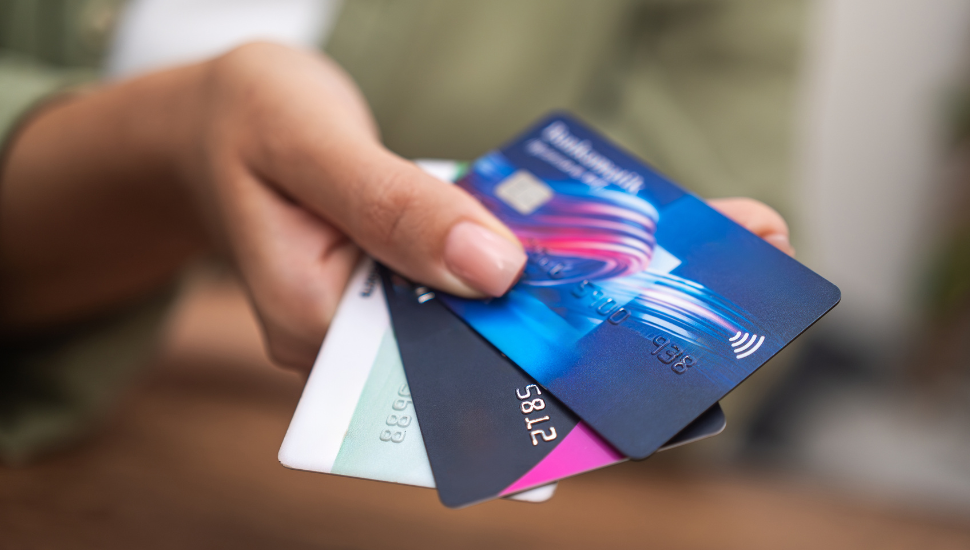
20. Tell your bank and credit card companies you're going abroad
Give your debit/credit card providers the heads-up that you're off travelling. This will prevent them from blocking your cards due to perceived 'suspicious activities'.
21. Consider accommodation away from the city centre
Hotels and guesthouses in city centres tend to be more costly than options in the suburbs or out of town. However, weigh these potential savings against any extra transport costs: if you plan to visit the city centre often, it may be cheaper and easier to stay in a more central location.
22. Store your rechargeable batteries in the fridge
Your rechargeable batteries will keep their charge much longer if you store them in your hotel fridge.
Batteries kept in cold temperature retain up to 90% of their charge.
23. Tweet your travel woes
Airlines and other travel firms don't like bad publicity, which is why it's a smart move to tweet providers with your issues. You may get a quicker response via X than by contacting them by phone.
24. Research free days at attractions
Many attractions are free for one day a week, or for an afternoon. Research galleries and museums at your destination, and see priceless artefacts and works of art without paying a penny.
These days can sometimes be crowded, but a freebie is a freebie!
25. Take an extension cable and USB wall adapters if staying in hostels
Access to plug sockets can be limited in hostels, where everyone wants to juice up their smartphone, tablet and/or laptop. Avoid the melee by packing an extension cable and/or USB wall adapter, which should expand the number of available USB sockets, or make it easier to use your phone while it charges. You'll also get kudos from other roommates.
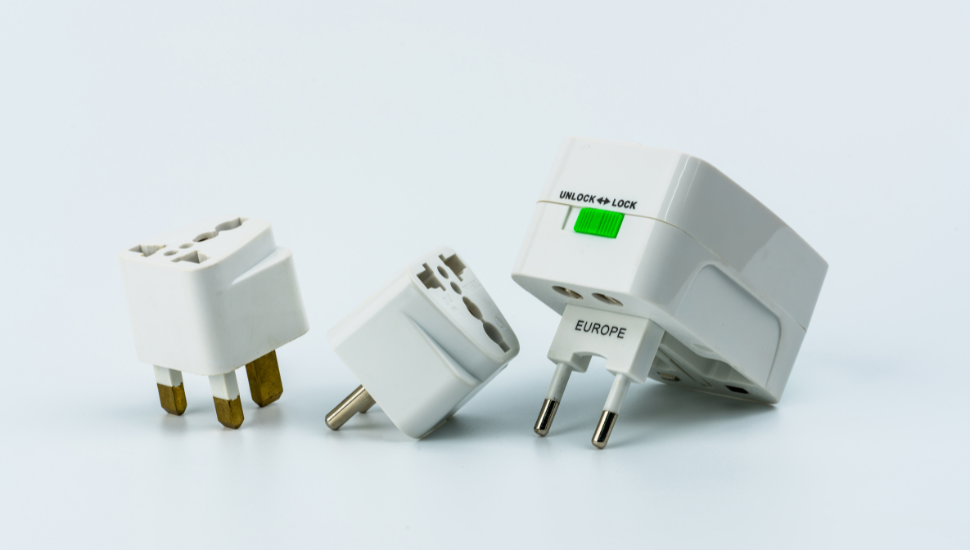
26. Pack the right adapters for your destination
Avoid the sinking sensation that comes with finding out your laptop or phone charger is incompatible with the wall socket by ensuring you pack the right travel adapter.
Consider a multi-plug system that can be used in several countries.
27. Save money by buying add-ons when you book your flight
It's nearly always cheaper to buy add-ons like priority boarding, extra luggage, and airport lounge access when you book your flight.
The cost of purchasing these add-ons later can quickly mount up, especially if purchasing multiple items.
28. Create frequent flyer accounts for every airline you use
Don't miss out on valuable air miles that you can put towards future trips.
Sign up for frequent flyer accounts on every airline you fly with. A little effort now could save you hundreds of pounds in a year or two.
And make sure you keep your boarding pass handy until the points have been added to your account (so you can prove you did fly with them).
29. Take an inflatable neck pillow
Getting quality sleep at 36,000 feet is a real challenge when your head keeps lolling around. Inflatable neck pillows can make a world of difference, and help you feel more refreshed upon arrival. These are especially helpful on long-haul flights, and can be bought online inexpensively.
Avoid buying them in expensive airport outlets.
30. Get wifi passwords from FourSquare
Access wifi connections in local restaurants, cafes, and bars by using FourSquare, where many passwords are listed.

31. Opt for long layovers and explore
To some, the long layover is an onerous prospect. But to the adventurous, it's an opportunity for a whistle-stop tour of a new city.
However, be sure you can access the city without paying for a visa. For example, nine Chinese cities can be accessed by Britons on free 24-hour visas, including Shanghai and Beijing.
32. Travel in a shoulder season
Avoid peak summer periods and travel in either September-November or March-May. You'll get cheaper flights and hotels, and experience fewer crowds - but the weather will still be good. What's not to love?
For more tips on getting a great deal on your 2024 holiday, check out this article!
33. Book overnight transport to save on accommodation
If you're one of those lucky people who can sleep on overnight buses and trains, then opting to travel overnight will save you money on accommodation.
Of course, if you don't sleep well, you may end up snoozing all day in your next hotel room!
34. Invest in a neck wallet
A neck wallet helps keep your essential items safe and secure. It simply hangs around your neck and can be kept under an overshirt (but over a t-shirt) for easy access. Compare this to a regular pocket wallet, which can be lost or stolen much more easily.
Additionally, a neck wallet will be large enough to keep your all-important passport in, and maybe even your smartphone too!
35. Place a 'FRAGILE' sticker on your luggage
Even if your luggage doesn't contain any valuable items, it's a good idea to put a 'FRAGILE' sticker on it. This way, your luggage should be treated with more respect, be placed on the top of the pile, and maybe sent out in the first batch.
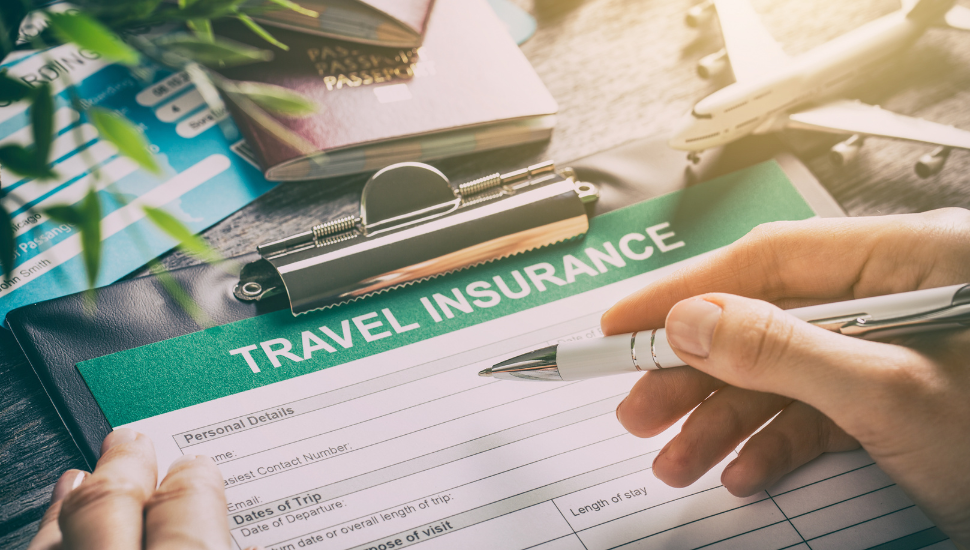
36. Take out travel insurance for peace of mind
If you have travel insurance bundled with your bank account or credit card account, double-check it is valid for your destination and duration of travel and that it provides enough cover. For example, it may not cover you for a longer trip, and may not protect you if you plan to do certain higher-risk activities, such as diving or skiing.
Having travel insurance gives you the peace of mind that you'll be able to claim for any unexpected costs while overseas - including medical bills.
Not sure when you should book your travel insurance? Find out ore here.
37. Wrap toiletries to prevent a sticky explosion
The lower air pressure inside a plane can make the air inside a bottle expand, pushing the liquid out. Wrap toiletries in a plastic bag or shower cap, in order to prevent liquids spilling into clothes and other packed items.
38. Get a better hotel rate by contacting them direct
Hotels may well offer you a better rate if you call them direct - compared to prices listed in hotel booking engines.
And if you do book your first night via a booking engine, ask reception if you can get a discount by booking direct for the following nights.
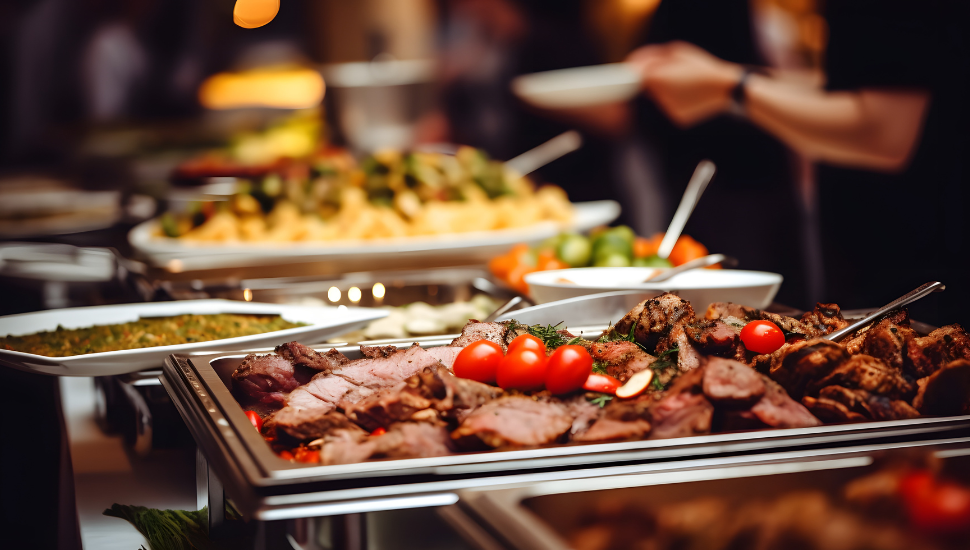
39. Book hotels with meals included
Many hotels include breakfast with their rooms, or for a very modest extra fee. This can save you several pounds a day compared with seeking out local eateries.
Some hotels include afternoon tea and other meals too.
40. Research happy hours for low-cost drinks and food
Look out for deals where drinks and food are offered at a discount. Do take note when the happy hour ends though, or your final bill could be higher than expected.
41. Choose visa-free destinations to cut costs
Many countries offer Britons entry without having to pay for a visa. For example, at time of writing Brits can stay in Vietnam visa-free for 45 days, and Georgia for one year!
42. Book airline meals if you have special dietary needs
If you only eat certain types of food - such as vegan, vegetarian or gluten-free - be sure to book your meals well in advance of departure. You can usually do this online, or by contacting the airline by phone.
Ensuring you get a good meal can help with jet lag and keep your spirits high.
43. Book your trip with a reputable agent
Booking flights and hotels with a lesser-known travel agent may be a little cheaper, but obscure firms can have poor customer service levels and may be more likely to go out of business. Pay a little more with a bigger name for peace of mind.
Get a Quote